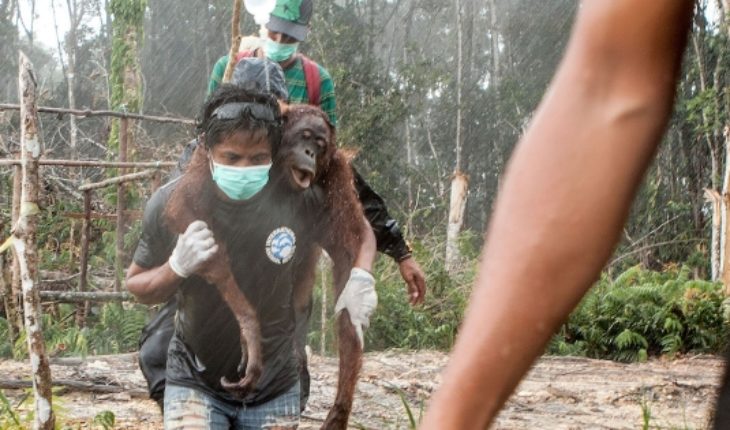while this Sunday marks the world day of the Orangutan, Greenpeace warned about the serious situation facing this iconic animal in Indonesia, where, according to various experts, the number of copies is declining at an accelerated pace. That, despite the fact that the local government says that the samples increased more than 10% between 2015 and 2017.
Indeed, while the Ministry of environment and forests of Indonesia has posed in a recent report called “The State of the forests of Indonesia in 2018” that grew the number of orang-utans, the optimistic stance of the authorities face a position much more pessimistic and that is based on the findings of a team of 41 scientists who published an investigation in March of this year in the journal Current Biology .
“Based on the characteristics of the life cycle of the orangutans, such a rapid growth rate is not possible, not even in zoos. After compiling data from observation, we estimate a decrease of 25% or 30% between 2005 and 2015. It is not likely to you have existed a significant change in a year”, said Mary Voigt of the Institute of evolutionary anthropology Max Planck in Germany, scientific who led the research.
The team found that half of all the orangutans of Borneo were affected by the extraction of resources and that became extinct over a hundred thousand copies from 1999 to 2014. “If stop hunting and the loss of forests in the future, this decline could be reversed, but that did not happen yet. So it is not clear how the authors of the report of the Government came to its conclusions about the increase in the number of orang-utans”, said Professor Serge Wich of the University of Amsterdam, co-author of the research.
In June, in addition, a Greenpeace investigation revealed an operation of illegal deforestation in a critical area in Sungai Putri, home to one of the most important populations of orangutans. In the same place, in 2017, the Minister of environment and forests ordered the owner of the logging company PT Mohairson Pawan Khatulistiwa (PT. MPK) stop its operations and fill a drainage channel that the company had blocked. However, photographs taken by Greenpeace in March 2018 revealed that the company did not meet the order and that its machinery was working in the area.
“The Government of Indonesia promised to protect the forests of the bogs that are still standing and orangutans who depend on them to live. It should not be allowed for this type of destruction to continue, however minimizes damage to wildlife through the publication of reports at odds with the scientific evidence. The Government must ensure and prioritize the total and permanent protection of the biodiversity of our forests”, said Leonel Mingo, Coordinator of campaigns of Greenpeace Andino.
According to the figures published by the Ministry of environment and forests, around 24 million hectares of forest were destroyed between 1990 and 2015, an area almost equivalent to the size of the United Kingdom.
The three types of orangutan (Borneo, Sumatra, and the newly-discovered species Tapanuli) are critically endangered according to the International Union for the conservation of nature (IUCN).





